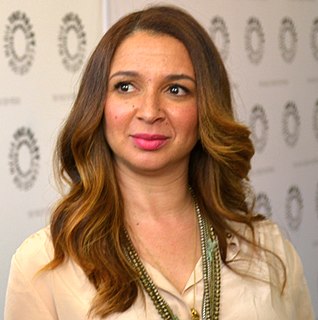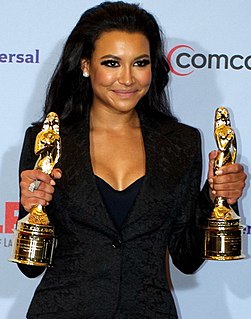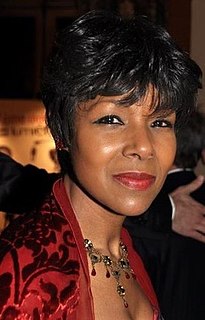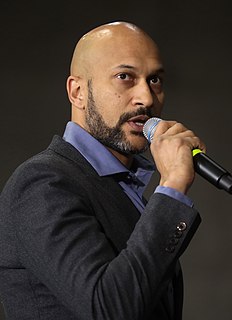A Quote by Maya Rudolph
I feel like I come from a smaller off shoot of black people because I am mixed. People say I’m African American but that doesn’t include the other half of me.
Related Quotes
My mom is Jamaican and Chinese, and my dad is Polish and African American, so I'm pretty mixed. My nickname in high school was United Nations. I was fine with it, even though I identify as a black woman. People don't realize it hurts my feelings when someone looks at my hair or my eyes, and says, "But you're not actually black. You're black, but you're not black black, because your eyes are green." I'm like, "What? No, no, I'm definitely black." Even some of my closest friends have said that. It's been a bit touchy for me.
If people feel misled or deceived, then sorry that they feel that way, but I believe that's more due to their definition and construct of race in their own minds than it is to my integrity or honesty, because I wouldn't say I'm African American, but I would say I'm black, and there's a difference in those terms.
When African-Americans come to France, the French show them more consideration than they would show an African or a Black Caribbean. When African-Americans come to France, the French people are like, 'Oh, wow. Oh my God.' But if it's an African, they're like, 'Whatever.' It's all because of the past, because of our history.
Black is confusing. Where does the line start and stop with what is black and what isn't black? People that are mixed-race, or, imagine being from Sri Lanka or Bangladesh, people might say you're black but your features are so non-black, like you've got straight hair, you've got like a sharper nose, or such.



































